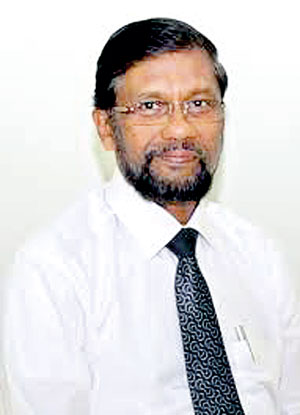News
‘SL should be proactive not reactive to virus’
Being proactive and not reactive is what we need as a country especially from the health authorities, said former Chief Epidemiologist Dr. Nihal Abeysinghe on Friday.
The “sure and logical” way forward is to appoint a strong team with health experts at the helm and consisting of experts from all other fields including the security forces, he told the Sunday Times, a message he has been reiterating since the beginning of the pandemic and its fallout in Sri Lanka in 2020. “This is not the time for knee-jerk reactions to a situation or hiding the head in the sand and hoping that the crisis will go away. It won’t.”

Dr. Nihal Abeysinghe
Dr. Abeysinghe was insistent that the health experts at the helm “must” include those with technical, clinical, laboratory and ground-level expertise who would study every issue on a scientific basis and make “informed” decisions without bowing to any kind of pressure. The other experts should be scientists representing other fields, government administrators, economists, agriculturists, business persons representing the big, medium and small sectors and the essential tri-forces and police.
“The focus should be how to control COVID-19, so that the people will not languish and die in their homes, the hospitals will not be overwhelmed, the health sector staff will not be driven to exhaustion, the laboratories will not be overburdened beyond their capacities and the people can resume their livelihoods in this new normal,” he said.
Re-look at the strategies
For this, Dr. Abeysinghe who is also the President of the College of Community Physicians of Sri Lanka, said that there is an urgent need to re-look at:
- The vaccine strategy
- The testing strategy
- The home-based monitoring & treatment strategy for COVID-19 positive people who are asymptomatic (without symptoms)
- The lockdown strategy
He said the people need to be told the truth. Facts should not be hidden because this pandemic is engulfing the people.
How should the pandemic be handled 14 months into this health emergency?
Dr. Abeysinghe said that a vibrant Health Operations Room should be set up. All data with regard to the COVID-19 infections should be meticulously gathered from the Regional Epidemiologists and the Consultant Community Physicians who work closely with the ground-level public health staff including the Medical Officers of Health (MOHs), Public Health Inspectors (PHIs), etc.The data from the laboratories (state and private sector hospitals as well as universities) conducting all the testing (both RT-PCR and rapid antigen testing) should be collated and reviewed regularly.
“All these would point the direction in which we should go,” he said.
The lists for contact tracing, isolation and quarantining should be handled by the MOHs/PHIs with the support of the tri-forces, said this expert, reiterating that a consensus on the way forward should be sought from the colleges representing the different branches of medicine after studying each development, however, minute as it crops up. A good spokesperson should also be appointed to respond to media queries without delay.
According to Dr. Abeysinghe lockdowns should not be locking and opening at whim but looking at all aspects so that when there is a lockdown people would have their minimum requirements throughout or ways to get their requirements. There should also be a review of such lockdowns every 10-14 days.
“Otherwise, we would be handling the pandemic in a patchwork style. The outcome would be – the pandemic would, at some time or other, die a natural death or we would die in the pandemic,” he added.
Where did we fault in our strategies?
Dr. Abeysinghe said that they included:
- Delayed decision-making – even when we knew that other countries were going off like COVID-19 time-bombs, we dragged our feet in closing our entry-points.Sri Lanka kept embracing tourists and the entry-points were lackadaisical about the screening for COVID-19. When the Minuwangoda cluster began, there was an inordinate delay in locking down the Gampaha district. Even in the third wave, lockdowns of affected areas came after a long time – this lag-time helped the virus to spread rapidly.
- We foolishly and with much naivete, assumed that we had divine protection, while even developed countries had been brought to their knees by the virus. Adding insult to injury, we gave a false sense of security against the virus by promoting this peniya or that and misleading people with myths.
- We never learnt from earlier clusters such as the Kandakadu or navy clusters and blundered along.
- Politicization of our decisions was rampant.

